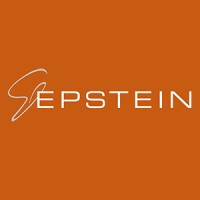'You Have To Be A Step Above': Design-Build Firms Race To Join Raleigh's Industrial Market

Major cities such as Boston and Washington, D.C., have long ruled the science and technology industries. But Raleigh, with its abundance of resources, is also making a name for itself.
Massive research hubs, such as the nation’s largest life sciences park, the 7,000-acre Research Triangle Park, have had a striking impact on the community. Research Triangle Park alone is home to more than 350 science and technology companies as well as 60,000 employees.
Research and technology markets in the region are expected to grow, with dozens of companies such as Enzyvant and MIMEDX announcing their expansion into the market last year. Noticing the market’s promise, Epstein, a Chicago-based multi-disciplinary design and construction company, has planted its roots in Raleigh and is bringing its 100-plus years of industry experience to the playing field.
“We were founded in 1921 and industrial has always been in our DNA,” said David Scott, senior vice president, director of professional services at Epstein. “We offer comprehensive in-house architecture and engineering services, ensuring a seamless process across all disciplines from start to finish. We have a lot of expertise and experience to give clients in Raleigh.”
Epstein’s portfolio doesn’t only include industrial projects, however. The team covers everything from designing corporate headquarters, convention centers and aviation facilities to HVAC and plumbing, interior design, and transportation and infrastructure work. As Scott phrases it, “There’s not a lot that Epstein hasn't done.”
Industrial projects have been a specialty of the firm since the early 1900s, and today make up between 60% to 70% of their annual projects. Their deep understanding of industrial and research processes also translates effectively into the construction and design of lab spaces, he added.
“There are a lot of similarities between technical spaces, like labs and the food processing and manufacturing sector, which we consider one of our areas of expertise,” he said. “While we're fairly new to Raleigh, we're not new to the design and technical knowledge that's required to go into those kinds of spaces.”
Scott said things to consider in creating an efficient biotech laboratory are Current Good Manufacturing Practice requirements, climate control, lab material segregation, stringent electrical and plumbing rules, and more, depending on the type of work being conducted in the space. Labs are very sensitive to all these factors, and Epstein’s team of engineers, architects and construction professionals are fully versed in these considerations, he said.
One project the firm worked on in Hoffman Estates, Illinois, demonstrates the company’s ability to create and fine-tune office and lab space to today’s needs, Scott said.
The $13M design-build project for Sensient Technologies involved renovating an existing food-testing lab and office building. The renovated facility provides laboratory space as well as unique flavor suites and a pilot plant to mimic large-scale production operations.
To further supplement this modernized food science laboratory, the space has extensive analytical laboratories and a showpiece culinary demonstration room which utilizes specialty curved glass and high-end finishes, Scott said. Epstein’s role included conducting all architectural and interior design work, industrial process engineering, MEP design and lab casework design and coordination.
“No firm thrives for 100 years without an evolution in its delivery of new ideas and service to its clients," Scott said. "It requires a commitment to continuous improvement based on intense curiosity, innovative thinking and creative problem-solving. This is the rigor with which Epstein approaches projects like Sensient Labs.”
Lewis Woods, Epstein’s new chief electrical engineer and a Raleigh native, brings a background in academic- and healthcare-related engineering projects, which he said are intrinsically linked to the science and technology sector.
“Healthcare has big links to biopharma, which is a huge part of the life sciences industry. And academic projects, such as at colleges and universities, often deal with the creation of laboratory spaces, so there’s just a lot of commonalities there,” he said.
These facilities tend to be customized spaces based on specialized equipment, Woods said. Epstein's experience in design-build, where it is addressing design issues throughout the construction process, positions it to handle these complex spaces and work seamlessly with local developers. The firm's process engineers provide unique value to clients by looking beyond the physical structure and focusing on the ultimate goals of the facilities — research, development and manufacturing — ultimately maximizing efficiencies, he added.
Woods said that Epstein’s expansion into the city’s growing science and technology scene could not come at a better time. The sector is poised to grow 10% annually until 2027 in the Raleigh area — a sign that investment and talent will continue to flow into the region.
Two notable biotech developments nearing completion in Raleigh are Spark LS and Pathway Triangle, adding more than 1M SF of lab and manufacturing space to the city’s science and tech scene. Major industry players, such as Fujifilm Diosynth Biotechnologies and Eli Lilly and Company, plan to invest a combined $4B in the near future for biomanufacturing purposes. Woods said the addition of these developments will also help to further solidify the Raleigh community as a major economic and life sciences powerhouse.
Breaking into a new, specialized market is not an easy feat, but Woods and Scott said Epstein is up to the challenge.
“In a market as highly technical and niche as this, you have to be a step up above the norm,” Woods said. “We're working on unique projects like these right now, and we want to bring that expertise to bear on opportunities in the Triangle.”
This article was produced in collaboration between Epstein and Studio B. Bisnow news staff was not involved in the production of this content.
Studio B is Bisnow’s in-house content and design studio. To learn more about how Studio B can help your team, reach out to studio@bisnow.com.

